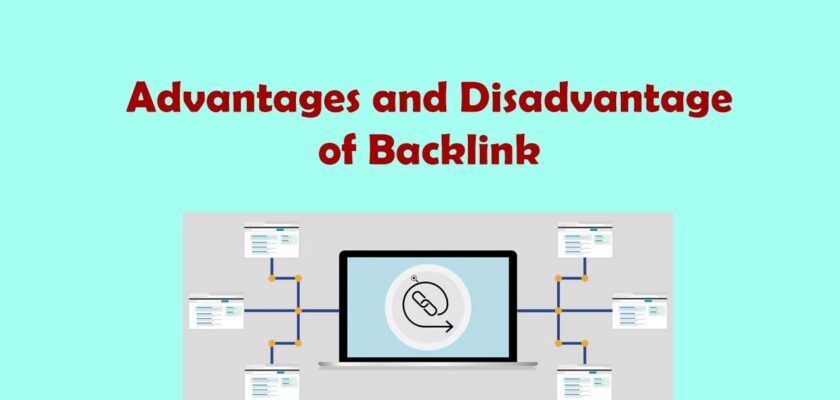What is Backlink?
A backlink, also known as an inbound link or incoming link, is a hyperlink that directs users from one website to another. It essentially acts as a reference or citation from one web page to another. Backlinks are a fundamental concept in the world of search engine optimization (SEO) and play a crucial role in determining a website’s authority, credibility, and visibility in search engine results.
Table of contents
Here’s how backlinks work and why they are important:
1. Linking Web Pages: When one website links to another, it creates a backlink. These links can be present in the form of text, images, or other media. When users click on a backlink, they are directed to the linked webpage.
2. Authority and Relevance: Search engines like Google consider backlinks as a measure of a website’s authority and relevance. When a reputable website links to another, it’s seen as a vote of confidence in the linked content’s quality and value. This can positively impact the linked webpage’s search engine ranking.
3. PageRank Algorithm: Backlinks were a central element in Google’s original PageRank algorithm, which evaluated the importance of web pages based on the number and quality of backlinks pointing to them. Although the algorithm has evolved, backlinks still play a significant role in determining a page’s authority.
4. Quality Over Quantity: Not all backlinks are created equal. Quality matters more than quantity. A few high-quality backlinks from authoritative, relevant, and trustworthy websites can have a more positive impact than many low-quality links from irrelevant or spammy sources.
5. Anchor Text: The text used in the hyperlink, known as anchor text, provides context about the linked page’s content. Properly optimized anchor text can help search engines understand the relevance of the linked page.
6. Natural vs. Manipulative: Search engines have become sophisticated in distinguishing between natural, earned backlinks and manipulative, artificial ones. Engaging in “black hat” SEO practices like buying backlinks or creating link farms can lead to penalties and harm your website’s ranking.
7. Link Building: The practice of acquiring backlinks to improve a website’s SEO is known as link building. Ethical link building involves creating valuable content that naturally attracts links, reaching out to other websites for partnerships or guest posts, and fostering relationships within your industry.
In summary, backlinks are essential for establishing a website’s authority and credibility in the eyes of search engines and users. They help drive organic traffic, improve search engine rankings, and contribute to the overall success of a website’s SEO strategy. However, it’s crucial to focus on acquiring high-quality, relevant backlinks through ethical means to avoid potential penalties and to maintain a strong online presence.
Backlinks play a significant role in search engine optimization (SEO) and can impact the visibility and authority of a blog post. However, they also come with both advantages and disadvantages. Let’s explore them:
Advantages of Backlinks for Blog Posts:
- Improved Search Engine Rankings: High-quality backlinks from reputable websites can boost your blog post’s search engine rankings. Search engines like Google consider backlinks as a vote of confidence in your content’s quality and relevance.
- Increased Organic Traffic: Quality backlinks can drive referral traffic to your blog post from other websites. This traffic can be highly targeted and engaged, leading to a potentially higher conversion rate.
- Enhanced Authority and Credibility: Backlinks from authoritative and trustworthy websites can lend credibility to your blog post and your overall website. This can establish you as an expert in your field.
- Faster Indexing: Backlinks can help search engine crawlers discover and index your blog post faster. This is particularly beneficial for new or time-sensitive content.
- Long-lasting Benefits: Once a backlink is established, it can continue to drive traffic and improve your SEO over time, even if you don’t actively promote the content.
Disadvantages of Backlinks for Blog Posts:
- Low-Quality Backlinks: Backlinks from spammy or low-quality websites can actually harm your SEO efforts. Search engines may consider them as an attempt to manipulate rankings and penalize your site.
- Unnatural Link Profiles: If your backlink profile appears unnatural (for example, if you have too many backlinks with exact-match anchor text), search engines might consider it manipulative and impose penalties.
- Link Decay: Over time, some websites might remove or change the backlinks to your content. This can lead to a decrease in referral traffic and authority.
- Time and Effort: Acquiring high-quality backlinks can be time-consuming and requires effort. Outreach, relationship building, and creating valuable content for others to link to all take time.
- Competition: In competitive niches, acquiring authoritative backlinks can be challenging, as other websites are vying for similar links.
- Dependency on External Sources: Relying solely on backlinks for traffic can be risky. Changes in search engine algorithms or shifts in the linking site’s strategy can impact your traffic significantly.
More_read: How do I rank my YouTube video quickly?
In conclusion, while backlinks can provide substantial benefits to your blog post’s visibility and authority, it’s crucial to focus on quality over quantity. Building a diverse and natural backlink profile through ethical means is essential to avoid potential disadvantages. Additionally, it’s important to prioritize creating high-quality content that naturally attracts backlinks rather than solely relying on link-building strategies.
Know More Click: How I can rank my website on Google?
